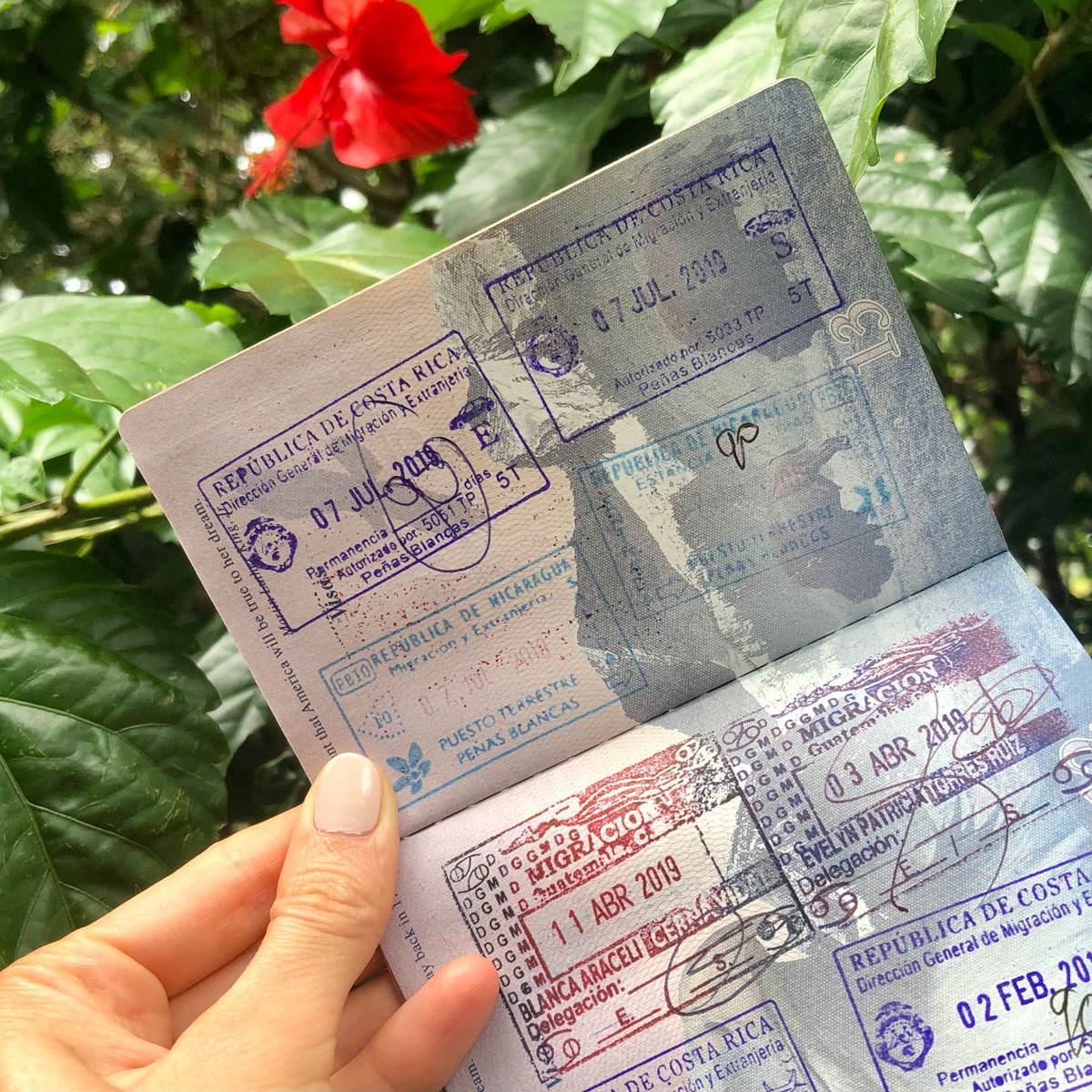Comparing the standard tourist visa with the new digital nomad visa
While we wait for the new digital nomad visa to become open for applications, you can still enter Costa Rica on a tourist visa to start digital nomad life in Costa Rica now! Travelers from many countries are allowed to enter Costa Rica on a 90 day tourist visa that is granted upon arrival, including the US, Canada, most European countries and many other Latin American countries as well. You can find your country’s visa length here. At this time there is no covid test required to enter, but you do need to show proof of onward travel and either proof of vaccination or insurance that fits the requirements defined by the health and tourism boards. Check on the most up-to-date entry requirements here. Land borders are open and flights have been steadily increasing to and from San José and Liberia airports.
The biggest advantage of the new visa is not having to leave the country after 3 months to renew your visa, and having the peace of mind that you are legally able to stay here for a year while working remotely.
What many digital nomads and long term tourists do now when their 90 day visa is up, is take a quick trip to a neighboring country to renew their tourist visas and be able enjoy Costa Rica for a bit longer. Flying in and out is an option and there are plenty of cheap flights to the US, Guatemala, Mexico, but you can also travel to Nicaragua or Panama by land. Many digital nomads love to travel anyway, so having an excuse to do a fun trip somewhere might be something you’d be doing anyway as part of this lifestyle.
But this option isn’t ideal for everyone, and can be stressful if you really want to settle in for a year or so to work comfortably from Costa Rica, which is why many people are looking forward to this digital nomad visa passing. When you first come here you might really want to visit other places in the region, but for remote workers with a strict schedule or who want to come with their families, leaving every three months might not be feasible or enjoyable.
Many of the benefits listed for the digital nomad visa actually already apply to tourists, or something very similar, at least. The biggest advantage of the new visa is not having to leave the country after 3 months to renew your visa, and having the peace of mind that you are legally able to stay here for a year while working remotely. And don’t get me wrong, that’s a huge deal. But some of the other things the proposed bill mentions are:
- The ability to import your work equipment tax free– Tourists are not taxed currently when traveling here with their personal laptops, and tourists are already permitted to import duty-free one product up to $500 in value every six months.
- The ability to open a savings account in Costa Rican banks– Many banks here already offer “tourist accounts”, for visitors to have access to local banking but with restrictions on the amount of money you can deposit monthly as well as some limits to online banking functionality, like transferring to other banks.
- Driving privileges for the duration of your stay– currently your driver’s license is valid as long as your tourist visa is, and it will renew when you reenter the country with a new valid stamp.
So as you can see, the digital nomad visa is really just an extended tourist visa, that will allow you most of the same privileges you get when you enter the country currently. If you want to come check out Costa Rica now, borders are open, flights are increasing in frequency, and it’s a great time to start discovering the country and working remotely from here, even before the digital nomad visa is available. It’s also an option for those of you that may not currently meet the income requirements. 90 days is plenty of time to enjoy a few different places here, keeping in mind that you may soon be able to apply for an even longer stay.
If you haven’t visited Costa Rica before and are thinking about working remotely from here, you don’t have to wait until the digital nomad visa passes. In fact, I’d encourage you to do an exploratory trip and stay for awhile on a tourist visa to see if you like it enough to want to apply for the new visa when it becomes an option. Costa Rica is beautiful and has a variety of climates and communities to try, but may not be the ideal place for everyone to spend a whole year in.

